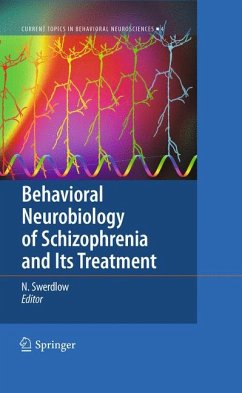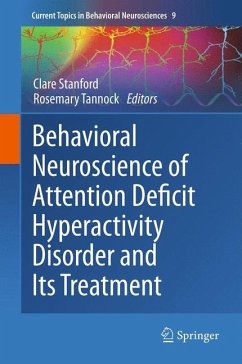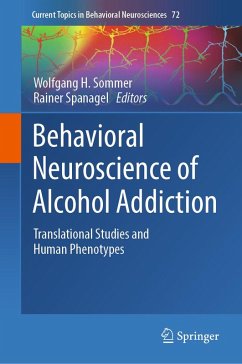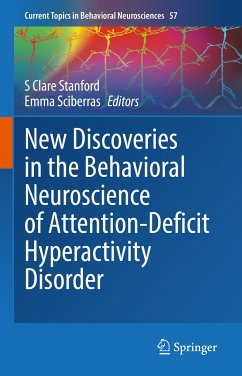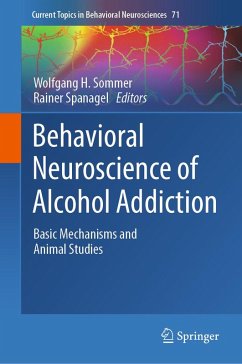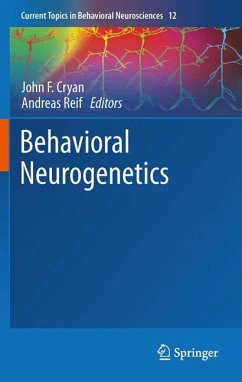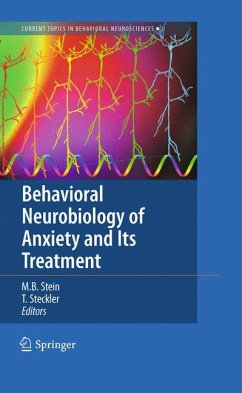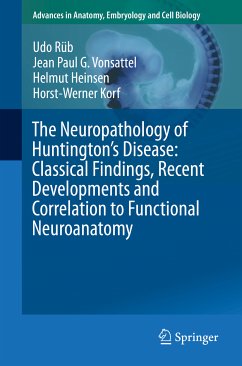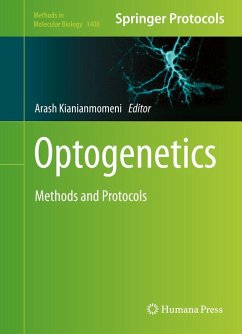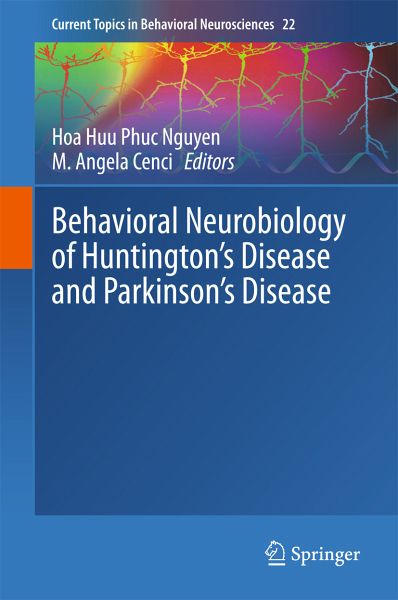
Behavioral Neurobiology of Huntington's Disease and Parkinson's Disease (eBook, PDF)
Versandkostenfrei!
Sofort per Download lieferbar
72,95 €
inkl. MwSt.
Weitere Ausgaben:

PAYBACK Punkte
36 °P sammeln!
Motor dysfunction and cognitive impairment are major symptoms in both Huntington's Disease (HD) and Parkinson's Disease (PD). A breakthrough in HD research was the identification of the gene that causes this devastating monogenetic illness. Similarly, several genes were found to cause familial forms of PD. With their identification, a plethora of genetic animal models has been generated and has revolutionized the understanding of the pathobiology and pathophysiology of these disorders. The models allow us to study the earliest manifestations of the diseases behaviorally and neuropathologically...
Motor dysfunction and cognitive impairment are major symptoms in both Huntington's Disease (HD) and Parkinson's Disease (PD). A breakthrough in HD research was the identification of the gene that causes this devastating monogenetic illness. Similarly, several genes were found to cause familial forms of PD. With their identification, a plethora of genetic animal models has been generated and has revolutionized the understanding of the pathobiology and pathophysiology of these disorders. The models allow us to study the earliest manifestations of the diseases behaviorally and neuropathologically and help us understand how they progress over time. Additionally, neurotoxic animal models are still of high interest to the PD field, as they are being used to study e.g. mitochondrial dysfunction in PD. This book focuses on animal models of both diseases and how they have helped and will continue to help understand the behavioral neurobiology in these disorders.
Dieser Download kann aus rechtlichen Gründen nur mit Rechnungsadresse in A, B, BG, CY, CZ, D, DK, EW, E, FIN, F, GR, HR, H, IRL, I, LT, L, LR, M, NL, PL, P, R, S, SLO, SK ausgeliefert werden.




